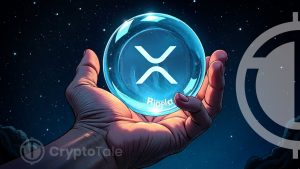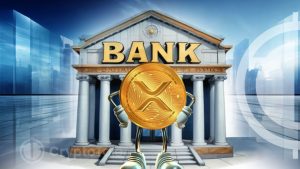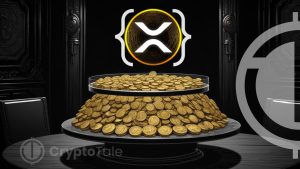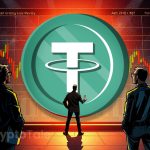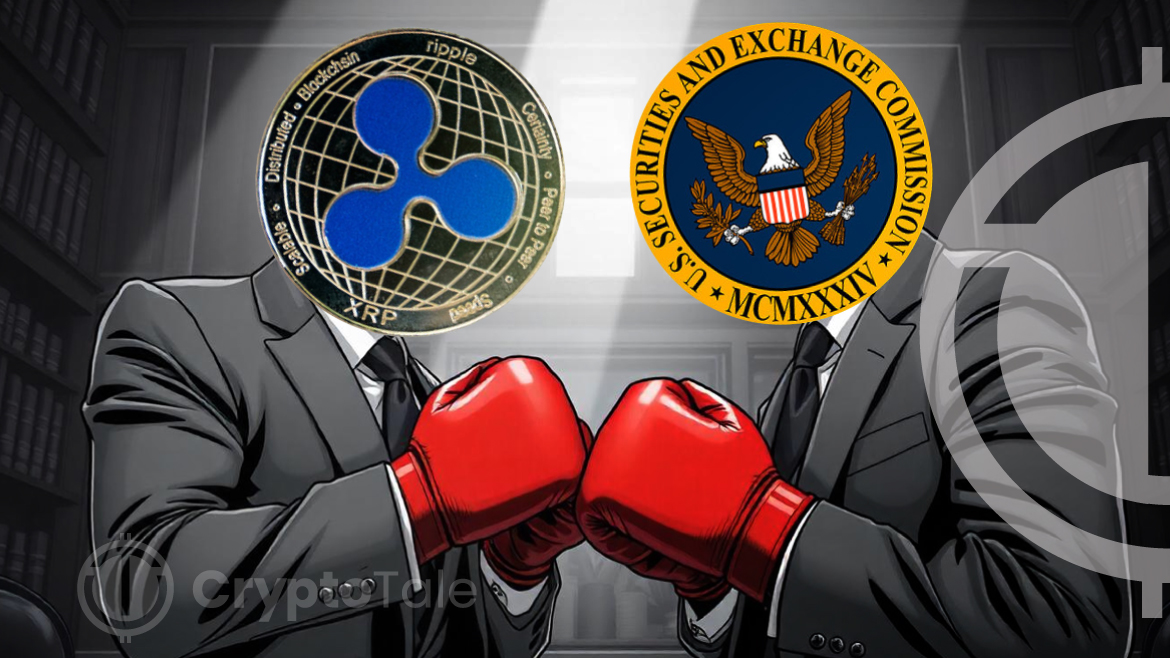
The crypto community faced a sudden bombshell on December 22, 2020, when the US Securities and Exchange Commission (SEC) filed a lawsuit against Ripple, a leading crypto payment platform. The XRP Army was stunned to realize that the SEC had deemed Ripple’s XRP as the third-most-popular cryptocurrency. The lawsuit not only sparked a fierce legal battle but also raised fundamental questions about the nature of cryptocurrencies, regulatory uncertainty, and the crypto industry’s future. This article will dive deep into the prolonged Ripple-SEC legal combat, its developments, and its impact on the broader crypto market.
History of Ripple and XRP
Ripple Labs, founded in 2012 by Chris Larsen and Jed McCaleb, aimed to revolutionize global payments. The platform was intended to build a decentralized system envisioning faster and cheaper transactions. With its native token, XRP, the firm focused on bridging the gap between cryptocurrencies and the mainstream financial system.
2013 marked a watershed moment in Ripple’s history when the platform was rebranded from OpenCoin to Ripple. The company secured its first major collaboration in 2014, partnering with Germany’s Fidor Bank. Subsequent partnerships with financial giants Santander and American Express grew Ripple’s credibility, solidifying its position as a leader in the digital payments landscape.
Ripple’s payment strategy centered on RippleNet which is a payment network facilitating real-time cross-border settlements for financial institutions. The bridging currency XRP, received widespread attention which made it to become the second-largest crypto in 2017. Gradually, Ripple expanded its reach through global collaborations. By 2020, Ripple had connections with more than 300 international financial organizations.
SEC Sued Ripple
In December 2020, the US crypto regulators sued Ripple Labs and its key executives, Chris Larsen and CEO Brad Garlinghouse. The suit was a major blow to the entire crypto industry. The SEC’s arguments against the platform were based on the legal status of the XRP token. They argued that Ripple violated the federal securities law and raised $1.3 billion by offering unregistered securities. The statement read,
The complaint alleges that Ripple raised funds, beginning in 2013, through the sale of digital assets known as XRP in an unregistered securities offering to investors in the U.S. and worldwide. Ripple also allegedly distributed billions of XRP in exchange for non-cash consideration, such as labor and market-making services.
Ripple’s Counterarguments
Ripple’s defense against the SEC’s security claims are centered on a key argument that XRP is not a security. The platform highlighted that XRP is a utility token for fast, low-cost border payments. Rather than being a security, XRP functions as a bridge currency in real-world transactions. Ripple asserted that XRP’s primary objective is to facilitate efficient transactions, not investments or profits.
Further, Ripple drew parallels with Bitcoin and Ether, the top tokens the SEC has deemed not securities. The SEC cited these cryptocurrencies’ sufficient decentralization as the reason for their non-security status. Comparing Bitcoin and Ether, Ripple posited that XRP also functions on similar decentralization properties. They claimed that penalizing XRP while allowing Bitcoin and Ether to operate freely creates an unfair regulatory standard.
As part of their defense, Ripple challenged the SEC’s definition of securities. They claimed that the SEC’s interpretation of securities laws is blurred and needs extensive legal and technical explanations. To strengthen their argument, Ripple sought access to internal SEC documents, which prolonged the proceedings.
US SEC May Appeal Ripple’s Court Ruling: Experts Weigh InRipple’s Partial Win in June 2023
In June 2023, Ripple secured a landmark win in the lawsuit when Judge Analisa Torres ruled that XRP, in its digital token form is not a security. The judge applied the Howey Test and evaluated four types of XRP transactions- institutional sales, programmatic sales, individual sales, and other distributions. As per her assessment, only institutional sales of XRP tokens met all the requirements of the Howey Test and proved the only sales that qualify as investment contracts. Thus, the court declared that the programmatic sales, individual sales, and other distribution of XRP tokens couldn’t be considered securities.
The court’s decision was a partial win for Ripple, as it limited the SEC’s reach in regulating digital assets. CEO Garlinghouse celebrated the moment, hailing it as a historic milestone not just for Ripple but also for the entire crypto industry. He reiterated his confidence in Ripple’s compliance with the law and its commitment to shaping the future of the crypto landscape.
Judge Denies SEC’s Appeal
Following the ruling, the SEC filed an appeal to the court’s decision. The appeal challenged the judge’s ruling that XRP’s programmatic sales on secondary platforms do not constitute securities transactions. However, Judge Torres rejected the appeal, asserting that her decision was specific to the Ripple lawsuit and did not apply to all secondary market sales of digital assets.
Judge’s Final Judgment and SEC’s Appeal
In her final judgment in August 2024, Judge Torres clarified that Ripple’s sales to retail clients are legal and are different from institutional sales. While the judge found that XRP’s institutional sales violated securities law, she ordered Ripple Labs to pay $125 million in civil penalties. This was much lower than the SEC-sought $2 billion but larger than the $10 million offered by Ripple. In addition, the court issued an injunction against the crypto firm to prevent future violations of securities laws.
Garlighouse acknowledged the court order as a “victory for Ripple, the industry, and the rule of law.” He further added,
We respect the Court’s decision and have clarity to continue growing our company…The SEC’s headwinds against the whole of the XRP community are gone.
However, in a recent move, the SEC filed an appeal, challenging the judge’s XRP ruling. While the XRP community considers it as a “disappointing but not surprising” move, Garlinghouse called the SEC and Gensler irrational. Soon, Ripple filed a cross-appeal, and the chief lawyer, Stuart Alderoty, stated that the move ensures no crucial issues are overlooked, particularly the definition of an “investment contract.” With SEC’s appeal and Ripple’s cross-appeal, the community is anticipating an imminent resolution that is expected to reshape the crypto regulatory environment.
XRP vs SEC: Ripple Awaits Lawsuit Appeal as Deadline LoomsRipple Lawsuit’s Impact on Crypto Market
The SEC’s Ripple lawsuit and the subsequent developments have significantly affected the XRP token and the broader crypto market. XRP saw a massive downfall of more than 50% shortly after the lawsuit. Regulatory uncertainty shook the community, and investors started offloading their tokens, losing confidence in XRP’s future growth.
Checking the price history of XRP, the token boasts three notable rallies, with the most significant surge traced back to the 2017-2018 bull run. During this period, XRP experienced a staggering hike of 19,000%, reaching an all-time high of $3.317.
In a broader context, the lawsuit triggered a chain reaction in the crypto market. Prominent exchanges like Coinbase, Binance, and Kraken suspended XRP from trading following the lawsuit. In addition, the lawsuit sparked fears of widespread regulatory crackdowns, triggering temporary price drops in various cryptocurrencies.
Later, when the court ruled in favor of Ripple, the crypto community celebrated it as a significant milestone. Industry experts believed that the ruling could be a game-changer in the crypto industry. While the SEC’s enforcement regulations have critically impacted multiple exchanges and tokens, the ruling was seen as a turning point to reshape the regulatory environment.
Conclusion
The fate of Ripple and XRP remains uncertain. Though they are intertwined, their future can be distinct. However, it is evident that the Ripple lawsuit plays a significant role in the future of both Ripple and its token. As both parties have submitted their appeal and cross-appeal, the community remains optimistic about the protracted legal war’s conclusion. The industry holds its breath, awaiting clarity on the regulatory landscape and the future of digital assets.



